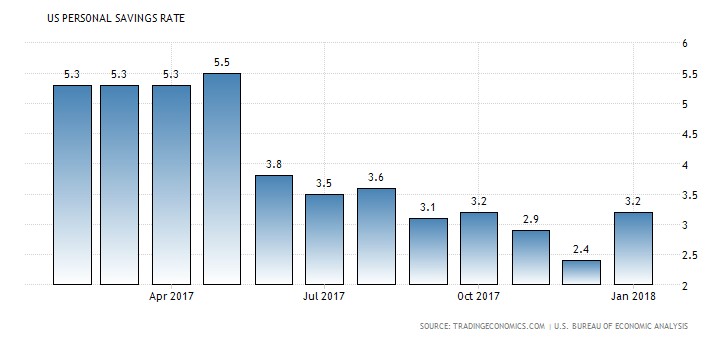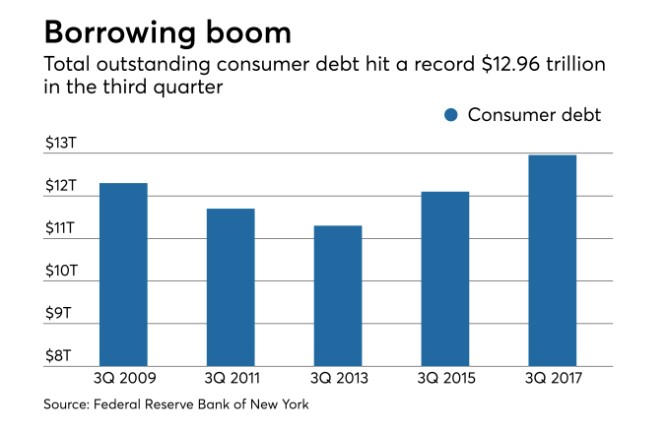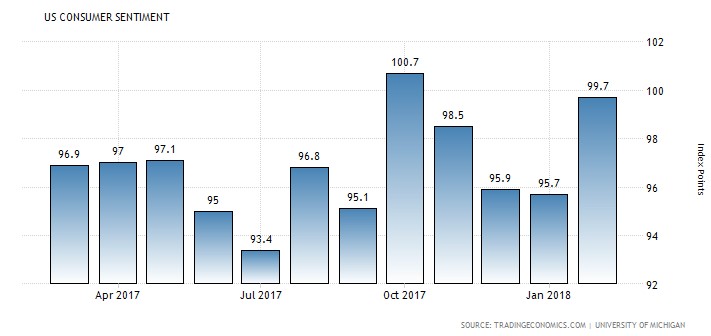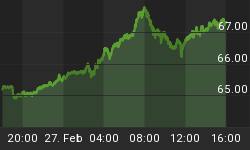Who needs a bulging nest egg when the economy is doing so well?
Not Americans.
At least, that’s what the latest economic data from the Federal Reserve on Wednesday might indicate:

(Click to enlarge)
Nest eggs are shrinking, and big-ticket-item credit has risen for two straight months, as Americans apparently show express their confidence in the U.S. economy.
While revolving consumer credit such as credit card debt increased by a mere $700,000 in January, non-revolving credit expanded by some $13.2 billion—accounting for almost all of the $13.9-billion credit growth in the first month of 2018.
True, the consensus was that overall consumer credit would expand by $17.7 billion, so January’s figures, for some, sound alarm bells of slowing growth.
But … ‘tis the season.
First of all, retail sales in January fell by 0.3 percent, so the drop in revolving credit should have come as no surprise. For revolving credit, the recorded 0.8-percent gain in January was the smallest gain since February 2015. In December 2017, the gain was 7.2 percent. And in the fourth quarter of last year, revolving credit was given an extra boost by people trying to replace property damaged during the hurricane season.
The Christmas spending season prompted a detox in January, while the New York Fed said the number of seriously delinquent credit cards saw a surge in the fourth quarter of 2017. And revolving credit still sits above $1 trillion.
No one should be panicking.
While some economists say that consumer health is misleading, and that job growth is skewing the perception that people should have more to spend, much of that job growth is low-end, and the money just isn’t there. Related: The Oil Industry Is Going Digital
But others say the January figures tell a different story.
Personal savings rates hit a 12-year low at the close of 2017, and this could indicate a renewed confidence in the U.S. economy; but there are also reasons to be concerned.
It also may mean that “many households likely do not have enough of a financial cushion to weather sudden economic shocks” and “it is not hard to imagine many households struggling to keep pace with their monthly bills”, according to American Banker.
Revolving credit’s January slump aside, borrowing is booming:

(Click to enlarge)
The borrowing boom could also mean that more consumers are using their savings to buy new homes, cars or other big-ticket items—a sign of growing confidence in the economy, says economist Dr. Dan Geller, the mastermind of the “Money Anxiety Index”.
Consumer confidence rebounded in February, says a University of Michigan consumer-sentiment index. The catalysts? Low unemployment and optimism about the new tax regime—all of which trumped volatility in the average American mind.

(Click to enlarge)
What could wreck it all? Inflation, the eternal bogeyman that threatens to slash consumer purchasing power and raise the bar on the money anxiety meter.
By Charles Benavidez for Safehaven.com
More Top Reads From Safehaven.com:
















